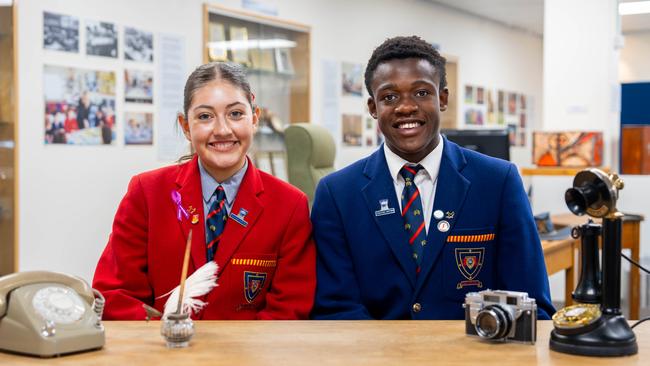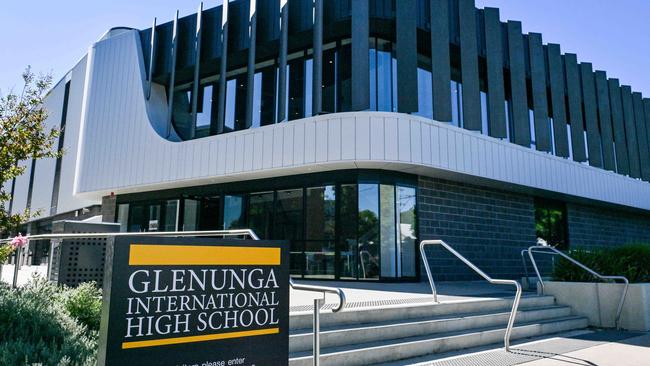St Ignatius College students at Athelstone, Norwood log off for ‘tech smart Tuesday’
These 21st century digital kids are about to get a crash course in how to solve problems the old fashioned way.
Students across South Australia are going back to books and ditching devices to promote social connection and healthy screen habits at school.
St Ignatius’ College, with campuses in Norwood and Athelstone, will introduce “Tech-smart Tuesdays”, beginning one day per week in term 2, which will involve limiting the use of screens in favour of handwriting, discussion-based learning and the use of physical textbooks.
Students will be encouraged to engage in problem-solving without the use of Google or ChatGPT and will have the opportunity to engage in wellness activities such as lunchtime walks.

St Ignatius’ College year 12 students Tumbika Kalua and Gabrielle Elias, both 17, believe the initiative will be beneficial.
“For mental health and for physical health as well, getting outdoors and doing more interacting with people is so beneficial, especially for young people,” Tumbika said.
Gabrielle said with brainstorming and class discussions, there are “perspectives you can gain that you can’t really find from Google”.
St Ignatius’ College principal Lauren Brooks said “while technology is a valuable tool for learning and communication, we are acutely aware of the cognitive concerns associated with reduced focus and increased distractions”.


“By dedicating one day a week to greater digital awareness, we hope to inspire more mindful and intentional technology use throughout the entire week too,” Ms Brooks said.
Education Minister Blair Boyer is considering implementing “technology free days” in public schools following a recent trip to an international teaching forum in Iceland.
The Education Department plays “a role in ensuring young people are explicitly taught how to use digital technology safely and appropriately”, a spokeswoman said.
She highlighted the mobile phone ban in all public schools, introduced in 2023, which is “the strongest in the country”.
“Having a break from technology is important for students as their brains are still developing,” the spokeswoman said.
Among public schools to take up technology initiatives is Glenunga International High School, where students in years 7 and 8 participate in “Digital Detox Days” once per term.
When the initiative started in 2023, students would refrain from using their devices during break times.

The following year it expanded to keeping devices shut and off for the entire day and the school encourages students and families to continue the “detox” at home.
Limiting the use of technology in schools will give students “breathing space”, according to Flinders University education expert Dr Leigh Burrows.
“It’s not that you wouldn’t have the devices … but they can also lead to isolation and separation,” Dr Burrows said.
“We created a disconnect by overemphasising technology.”
Engaging in classroom activities and using physical books creates “much less disruption” for students.
“It really changes the atmosphere in the classroom,” she said.



